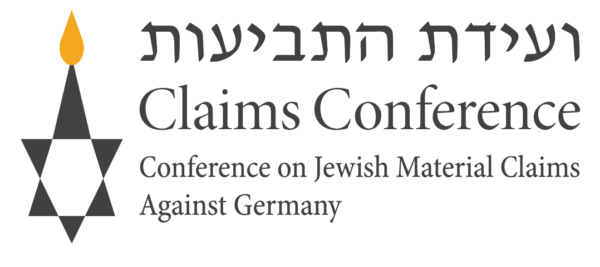Certain Ghetto Survivors Can Now Receive Both “Ghetto Pension” and Ghetto Fund Payment; Application Deadline Abolished
Claims Conference in the Media | Press Inquiries | Publications | Videos | Updates
This post is for historical informational purposes only. Please do not refer to this post for information pertaining to current Claims Conference programs. Visit What We Do for current program guidelines and information. Thank you.
November 28, 2011
In negotiations with the Claims Conference, the German government has agreed to remove the application deadline for application to the Ghetto Work Fund, which provides a one-time payment of €2,000 to certain Jewish survivors of Nazi-era ghettos.
The Ghetto Fund previously had an application deadline of December 31, 2011. In addition, the German government recently agreed that eligible Jewish survivors of ghettos who worked “without force” are now entitled to receive both German Social Security payments and the Ghetto Fund one-time payment of €2,000. Previously, eligible survivors were not entitled to receive both, but Claims Conference negotiations have resulted in a change to German law on this issue.
German government Social Security pensions, widely known as “Ghetto Pensions,” are available to Holocaust survivors who were employed for some form of remuneration during their internment in Nazi ghettos annexed to the Third Reich. The law is formally known by its German acronym, ZRBG.
Previously, the majority of survivors who applied for Ghetto Pensions were rejected due to overly strict interpretation of criteria by local authorities processing applications. In 2007 the German government established a compensation fund to recognize Holocaust victims who carried out work “without force” during their internment in a Nazi ghetto. The fund’s one-time payment of €2,000 was created to acknowledge ghetto survivors who had been rejected for German Social Security payments and it came as a response to intense international pressure spearheaded by the Claims Conference.
The one-time payment of €2,000 is known as the “Ghetto Fund” and is administered by Germany’s BADV federal office in Bonn.
Recent changes in German law now allow eligible Jewish survivors to receive both payments.
Ghetto survivors who have not yet applied to the Ghetto Fund or the Ghetto Pension should do so at once. There is no deadline to apply for the Ghetto Pension or the one-time award of €2,000 from the Ghetto Fund.
Please see: Information on how to apply to the Ghetto Fund and criteria on the Claims Conference website.
Many potential claimants are being contacted proactively by German BADV or ZRBG offices that are alerting them to the change in the former exclusion clauses. The Claims Conference is reaching out to survivors of Nazi ghettos and to the agencies that work with them in an effort to ensure that every potential claimant has a chance to claim both the Ghetto Fund one-time payment and the Ghetto Pension.
The German government is also in the process of reconsidering 56,000 previously rejected claims for the Ghetto Pension and will contact applicants if their claims are now accepted.
Please see: Information on how to apply to the Ghetto Pension and criteria on the Claims Conference website.
THESE ARE NOT CLAIMS CONFERENCE PROGRAMS. YOU MUST APPLY TO THE RELEVANT GERMAN GOVERNMENT OFFICES LISTED ON OUR WEBSITE.
The Claims Conference is not involved in the administration, implementation or processing of applications for the Ghetto Pension or the Ghetto Fund. The information presented herein is intended for information purposes only and solely as a general guide. The information is not intended as legal advice. It is a summary of specific issues and does not represent a definitive or complete statement of the programs and policies of the agencies or governments mentioned. The information may not address the special needs, interests and circumstances of individual recipients. Individual situations differ and recipients are urged to seek individual advice. Individuals seeking specific information on a program are urged to contact the relevant program or to consult their social service agency or help center representative. While the Claims Conference provides information on a general basis to various help and assistance centers, each help and assistance c enter is solely re! sponsible for the advice provided by it. To the best of our knowledge the information is correct as of the date of this document and this information may change subsequent to the said date – November 28, 2011

